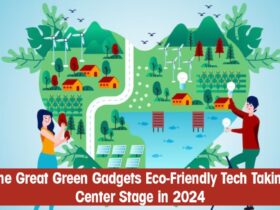Scientific research has undergone a significant transformation in recent years, challenging conventional ideas about scientists and the way research is done. Driven by the emergence of citizen scientists, this transformative change is propelled by individuals who, equipped with a thirst for exploration and the necessary resources, actively participate in valuable scientific research beyond the boundaries of conventional establishments. Central to this revolution are do-it-yourself technology tools, which have been instrumental in making research accessible and enabling interested individuals to make meaningful contributions to scientific progress.
The Fascinating Journey of Citizen Science
Citizen science has a rich history, with individuals like amateur astronomers, bird watchers, and naturalists making valuable contributions to scientific knowledge throughout the years. Yet, with the rise of modern technology, scientific inquiry has become more accessible to a broader audience than ever before. The power of the internet and open-source software has brought people from all over the world together to collaborate and contribute to scientific research. This global network allows individuals to work together, regardless of their location or affiliation, breaking down barriers and fostering innovation.
Research has become more accessible in various fields, including astronomy, environmental science, biology, and even particle physics. Platforms such as Zooniverse and Foldit have successfully attracted a large number of volunteers who have participated in a wide range of tasks, from classifying galaxies to solving intricate protein-folding puzzles. These projects demonstrate how the collective intelligence of citizens can contribute to our knowledge and understanding of the world.
Empowering Citizen Scientists with DIY Tech Tools
The increasing popularity of citizen scientists can be attributed to the accessibility of affordable and user-friendly DIY tech tools, which enable enthusiasts to engage in research projects actively. These tools cover various fields, including environmental monitoring devices and DNA sequencing kits, allowing anyone with a curious mind to engage in scientific exploration.
- Arduino and Raspberry Pi: These affordable microcontroller platforms have become the foundation of countless DIY projects. These tools empower citizen scientists to create their own custom sensors, data loggers, and even basic robotic systems. This allows them to gather and analyze data in real-time, making their research more accessible and efficient.
- 3D Printing: The accessibility of 3D printing technology has allowed individuals to produce their laboratory equipment. With 3D printing, you can create essential tools like microscopes and pipettes at a much lower cost compared to what’s available in the market.
- Open-Source Software and Hardware: The open-source movement has been helpful in making software and hardware ideas available for free. GitHub and similar platforms provide a space for code and schematics, encouraging collaboration and enabling citizen scientists to expand on each other’s ideas.
- Discover the world of DIY Biology Kits: With the increasing accessibility of biotechnology, now you can conduct fascinating experiments right in the comfort of your own home. Several experiments can be done without a fully equipped laboratory, such as DNA extraction, PCR amplification, and gel electrophoresis.
- Citizen-Made Satellites: Thanks to recent advancements in miniaturized satellite technology, everyday people now have the opportunity to create, construct, and send their very own small satellites into outer space. This provides exciting possibilities for individuals interested in astronomy, engineering, and space to make valuable contributions to our knowledge of Earth and the universe.
The Influence on Scientific Research
Citizen scientists using DIY tech tools have made significant contributions, both in terms of quantity and quality. Projects like the Open Source Malaria initiative demonstrate how citizen scientists can contribute to drug discovery by designing and synthesizing new antimalarial compounds. It showcases the potential for meaningful advancements in this field.
DIY sensors built with Arduino or Raspberry Pi have made it possible for people in environmental science to monitor air and water quality quickly and creatively. This community-driven data collection not only complements official datasets but also offers a deeper insight into environmental issues, often revealing local concerns that conventional research methods may have missed.
In addition, citizen science projects promote a sense of community and shared ownership of scientific knowledge through collaboration. Online forums and social media platforms offer a space for people to engage in discussions, seek guidance, and share achievements, fostering a supportive community that goes beyond physical borders.
Exploring the complexities and ethical dilemmas
- With the emergence of citizen science and DIY tech tools, new possibilities are opening up, but they also come with their fair share of challenges and ethical considerations. Ongoing concerns include quality control and data validation by non-experts. Navigating the delicate balance between inclusivity and scientific rigor is an ongoing challenge for the community.
- In addition, it is essential to consider and resolve concerns regarding data privacy, intellectual property, and safety. With more and more people conducting experiments at home, it’s essential to have clear guidelines that promote responsible and ethical scientific exploration.
Effects on Education and Public Engagement
The accessibility of DIY tech tools is revolutionizing research, making it more inclusive and impactful. This not only drives scientific progress but also enhances education and public engagement. Engaging in citizen science projects offers a one-of-a-kind chance to learn by doing, enabling individuals to put their theoretical knowledge into practice. This method encourages a greater comprehension of scientific ideas and techniques, sparking the interest of future scientists and nurturing a society that is knowledgeable in science.
In addition, citizen science fosters a collaborative and inclusive approach to scientific inquiry, making it more accessible and engaging for everyone involved. The usual obstacles to getting started, like having a formal education or being part of a specific institution, are much less critical. By making research more accessible, people from all walks of life can now actively participate in scientific research and influence ongoing scientific discussions.
Conclusion
The emergence of the citizen scientist, enabled by accessible DIY technology, signifies a significant change in the way scientific research is carried out and the inclusivity it brings. This democratization of research not only broadens the range of contributors but also brings in a variety of perspectives and explores new questions. Citizen scientists are using affordable and accessible technology to contribute to our understanding of the world, from the depths of the oceans to the reaches of outer space. In this exciting age of collaborative discovery, it’s essential to tackle challenges and maintain ethical standards to ensure that the democratization of science benefits society as a whole.













Welcome To Biz Times Now
Welcome to Biz Times Now, the leading business magazine dedicated to providing invaluable insights and strategic guidance to top-level executives and managing personnel.